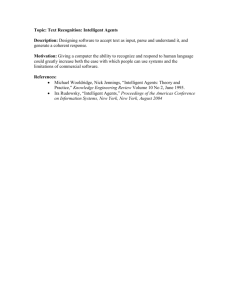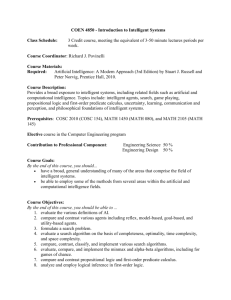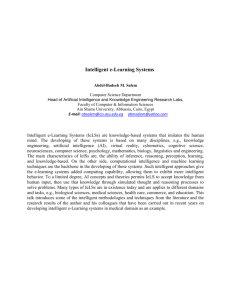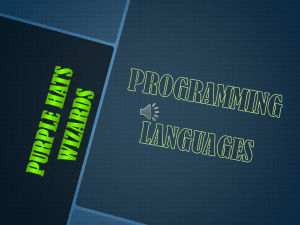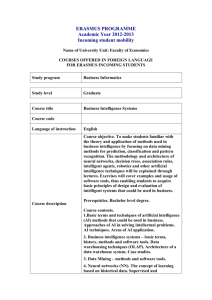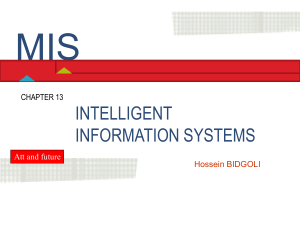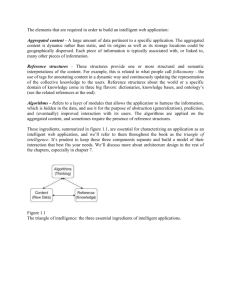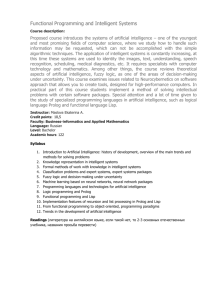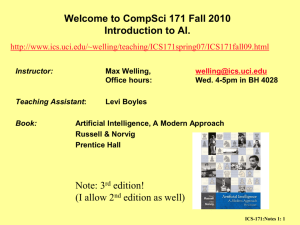Syllabus
advertisement
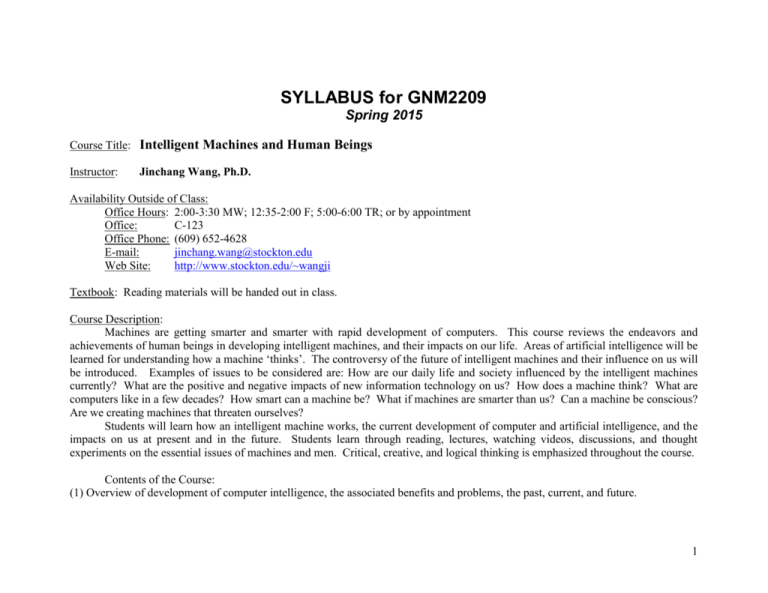
SYLLABUS for GNM2209 Spring 2015 Course Title: Intelligent Machines and Human Beings Instructor: Jinchang Wang, Ph.D. Availability Outside of Class: Office Hours: 2:00-3:30 MW; 12:35-2:00 F; 5:00-6:00 TR; or by appointment Office: C-123 Office Phone: (609) 652-4628 E-mail: jinchang.wang@stockton.edu Web Site: http://www.stockton.edu/~wangji Textbook: Reading materials will be handed out in class. Course Description: Machines are getting smarter and smarter with rapid development of computers. This course reviews the endeavors and achievements of human beings in developing intelligent machines, and their impacts on our life. Areas of artificial intelligence will be learned for understanding how a machine ‘thinks’. The controversy of the future of intelligent machines and their influence on us will be introduced. Examples of issues to be considered are: How are our daily life and society influenced by the intelligent machines currently? What are the positive and negative impacts of new information technology on us? How does a machine think? What are computers like in a few decades? How smart can a machine be? What if machines are smarter than us? Can a machine be conscious? Are we creating machines that threaten ourselves? Students will learn how an intelligent machine works, the current development of computer and artificial intelligence, and the impacts on us at present and in the future. Students learn through reading, lectures, watching videos, discussions, and thought experiments on the essential issues of machines and men. Critical, creative, and logical thinking is emphasized throughout the course. Contents of the Course: (1) Overview of development of computer intelligence, the associated benefits and problems, the past, current, and future. 1 (2) How a computer works and “thinks”, Turing machine and Turing test. (3) How “intelligent” current computers are, and their impacts on our society and daily life, such as employment, work life, social life, economy, privacy, education, politics, warfare, security, and ethics. (4) Artificial intelligence (AI): - What AI is; Fields in AI; Future of AI. (5) Future of intelligent machines, - End or blessing of humanity? Quizzes: Quizzes are in-class and closed-notes, which may not be announced ahead. Missed quizzes cannot be made up. But one quiz of the lowest score is dropped when calculating the final grade. Late Assignments: Homework should be submitted on or before the due dates. Penalty of lateness: 50% off if one day late; no credit if two or more days late. A class work is due at the class, and no credit after the class. Attendance: Attendance will be taken in class, and counted into the final grade (A student’s first two missed classes are not counted). Grading: Quizzes 35% Homework/Class work 50% Attendance 15% Each student's accumulated score is adjusted on a 100-point base at the end of the semester. The grades are given according to the accumulated scores as follows: Accumulated score Grade >=94 A <94 and >=90 A <90 and >=87 B+ <87 and >=82 B <82 and >=80 B <80 and >=75 C+ 2 <75 and >=70 C <70 and >=67 C <67 and >=65 D+ <65 and >=60 D <60 and >=58 D <58 F The accumulated score is calculated as follows: (35 * your total Quiz score / possible total Quiz score) + (50 * your total Assignment score / possible total Assignment score) + (15 * your Attendance / possible total Attendance) ----------------------------------------------------------------------------------------------= Your accumulated score out of 100. Academic Honesty: Students are required to do their work independently in the exams. Any forms of cheating will not be tolerated. Handicapped Students: Any student in this course who has a disability that prevents the fullest expression of abilities should contact me personally as soon as possible so that we can discuss class requirements. 3

